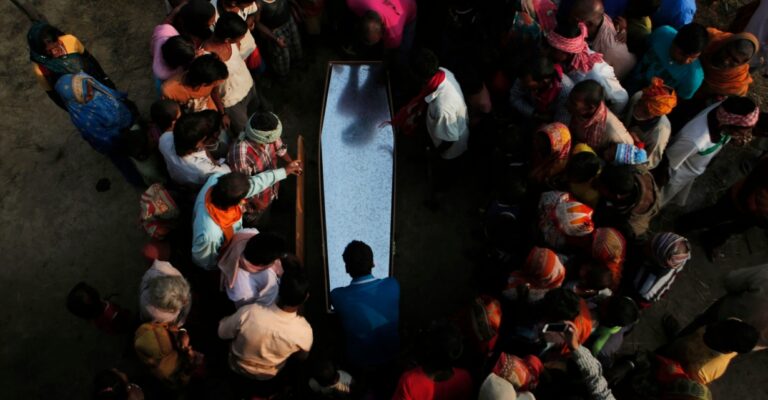
Qatari authorities have failed to investigate the deaths of thousands of migrant workers over the past decade, despite evidence of links between premature deaths and unsafe working conditions, Amnesty International (AI) has said.
AI’s new report, ‘In the Prime of their Lives’, documents how Qatar routinely issues death certificates for migrant workers without conducting adequate investigations, instead attributing deaths to “natural causes” or vaguely defined cardiac failures.
These certifications – described by one leading pathologist as “meaningless” – rule out the possibility of compensation for bereaved families, many of whom are already facing financial difficulties after losing their main breadwinner.
Amnesty International highlighted the risks posed to workers by Qatar’s extreme climate, especially when combined with excessive and physically strenuous working hours. Qatar recently introduced some new protections for workers, but major risks remain and authorities have done little to investigate the scale of heat-related deaths.
As well as consulting leading medical experts and reviewing government data relating to thousands of deaths, Amnesty analyzed 18 death certificates and interviewed the families of six men, all of whom were between 30 and 40 when they died.
AI reviewed 18 death certificates for migrant workers issued by Qatar between 2017 and 2021. Fifteen provided no information about underlying causes, instead using terms such as “acute heart failure natural causes”, “heart failure unspecified” and “acute respiratory failure due to natural causes”.
Similar phrases were used in reports for more than half of the 35 deaths which have been recorded as “non-work related” on World Cup facilities since 2015 – suggesting meaningful investigations were unlikely to have been carried out in these cases.
AI investigated the deaths of six migrant workers in detail – four construction workers, one security guard and one truck driver. None of the men had any known underlying health conditions, and all had passed mandatory medical tests before traveling to Qatar. None of their families have received compensation.
Tul Bahadur Gharti, 34, worked in construction. He died in his sleep on 28 May 2020, after working around ten hours in temperatures that had reached 39°C.
Yam Bahadur Rana, 34, worked as an airport security guard, a job which involved long hours sitting outside in the sun. He died at work on 22 February 2020.
Amnesty International interviewed the men’s families in Nepal. Family members emphasized their shock at the deaths, stressing that they had believed their relatives to be in in good health. Several described the extreme heat and difficult conditions their relatives had regularly been exposed to at work.
Yam Bahadur Rana’s wife Bhumisara said, “[My husband] had to sit in the sun for a long time. I feel like he had a heart attack due to dryness and heat because I never knew he was sick.”
Tul Bahadur Gharti’s wife Bipana said, “I had never heard him mention a single illness… it was hard to believe when I heard the news of his sudden death… My husband was set on fire. I feel like I’m burning in oil.”
The struggles these families are now facing illustrate the cycle of exploitation which continues to ensnare so many migrant workers in Qatar. Since being awarded the 2022 FIFA World Cup in 2010, Qatar has made several significant positive reforms to its labor laws.
But weak implementation and enforcement mean that progress on the ground has been slow, and exploitation remains commonplace. Many migrant workers remain at the mercy of unscrupulous employers, who are allowed to commit abuses with impunity.






